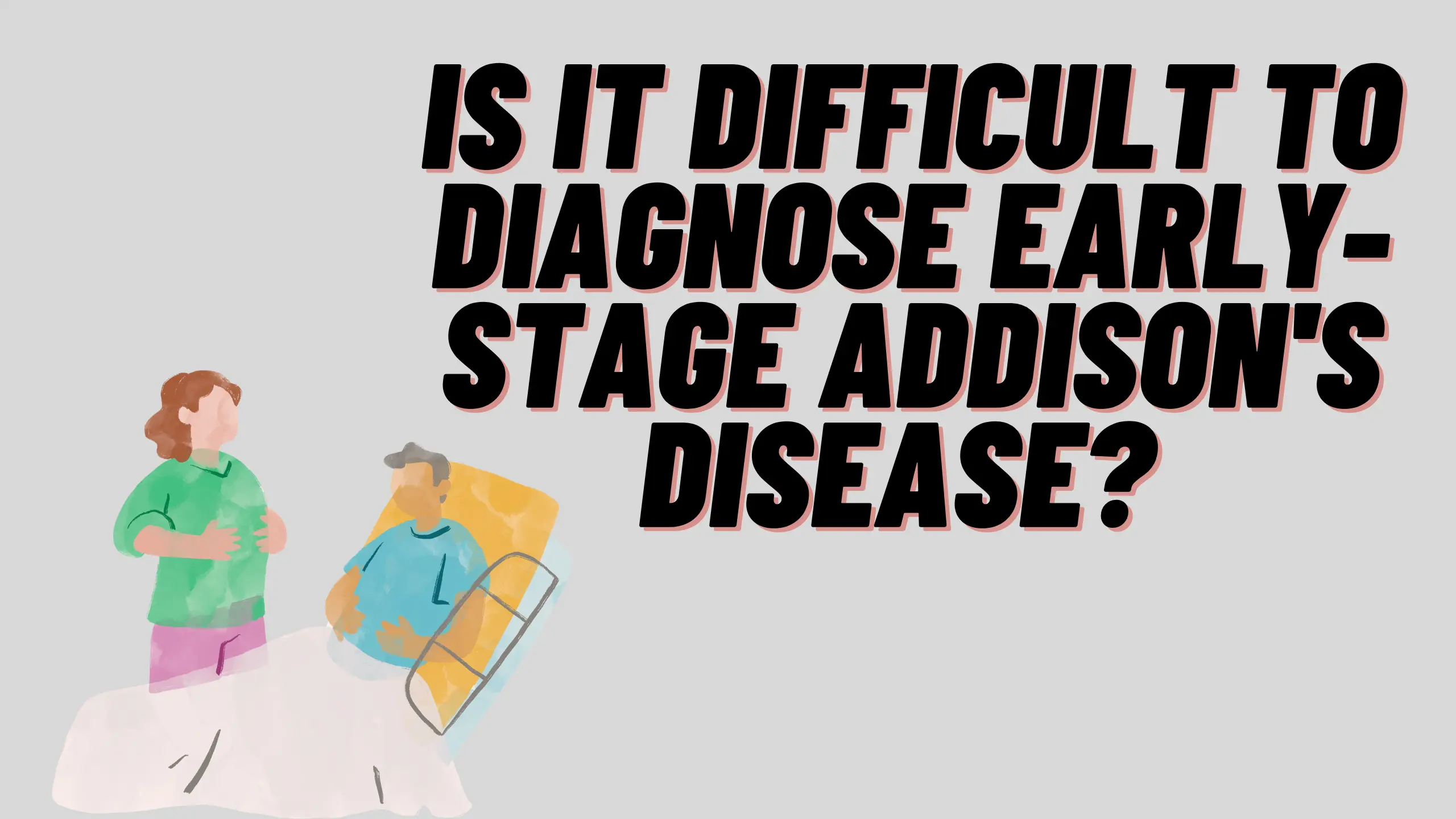Is it difficult to diagnose early-stage Addison’s disease?
Houston Endocrine Center2023-03-13T16:03:30+00:00Addison’s disease is a rare but serious condition in which the adrenal glands fail to produce sufficient cortisol and aldosterone hormones. The symptoms of Addison’s disease can be vague and non-specific, making it difficult to diagnose in its early stages. This blog will discuss the challenges and considerations in diagnosing early-stage Addison’s disease.

Understanding Addison’s Disease
Before we dive into the diagnosis, let’s take a moment to understand Addison’s disease and its causes. Addison’s disease is caused by damage to the adrenal glands, which produce several hormones critical to the body’s functioning. The most important of these hormones are cortisol and aldosterone. Cortisol helps regulate blood sugar levels, blood pressure, and the body’s response to stress. Aldosterone regulates the balance of salt and water in the body.
To understand more visit https://www.ncbi.nlm.nih.gov/books/NBK441994/#:~:text=Addison%20disease%20usually%20manifests%20as,be%20maintained%20to%20avoid%20misdiagnosis.
Symptoms of Addison’s Disease

The symptoms of Addison’s disease can be vague and non-specific, and they often develop slowly over time. Some common symptoms include:
- Fatigue and weakness
- Loss of appetite and weight loss
- Nausea and vomiting
- Abdominal pain
- Joint pain
- Low blood pressure
- Dizziness or fainting
- Salt cravings
- Darkening of the skin
Diagnosing Early-Stage Addison’s Disease

Diagnosing early-stage Addison’s disease can be challenging for several reasons:
- The symptoms are often vague and non-specific, and they can mimic other conditions.
- The symptoms may develop slowly over time, making it difficult to notice a sudden change.
- Many people with early-stage Addison’s disease may not have any symptoms.
There are several tests that doctors can use to diagnose Addison’s disease, including:
- Blood tests: Blood tests can measure the levels of cortisol and aldosterone hormones in the blood. These levels may be lower than normal in people with Addison’s disease.
- ACTH stimulation test measures how the adrenal glands respond to adrenocorticotropic hormone (ACTH). In people with Addison’s disease, the adrenal glands may not produce enough cortisol in response to ACTH.
- Insulin-induced hypoglycemia test: This test can help diagnose Addison’s disease by measuring the body’s response to low blood sugar levels. The response may be delayed or blunted in people with Addison’s disease.
- Imaging tests: Imaging tests such as CT scans or MRIs can help identify damage to the adrenal glands.
It’s important to note that diagnosing early-stage Addison’s disease can be challenging, and it may require multiple tests over some time to confirm the diagnosis.
Treatment for Addison’s Disease
Treating Addison’s disease involves replacing the hormones the adrenal glands are not producing. This typically involves taking a combination of cortisol and aldosterone replacement medications. People with Addison’s disease need to work closely with their doctors to find the right medication dosage, as too much or too little can be dangerous.
In severe cases of Addison’s disease, an adrenal crisis can occur. An adrenal crisis can be life-threatening if not treated promptly. Signs of the adrenal crisis include severe nausea and vomiting, low blood pressure, confusion, and loss of consciousness. If you suspect yourself experiencing an adrenal crisis, seek emergency medical attention immediately.
Conclusion
Diagnosing early-stage Addison’s disease can be challenging, as the symptoms are often vague and non-specific. However, doctors can diagnose and treat this condition effectively with the right tests and careful monitoring. If you’re experiencing symptoms of Addison’s disease
Do you know how hemolytic-uremic syndrome is treated?
